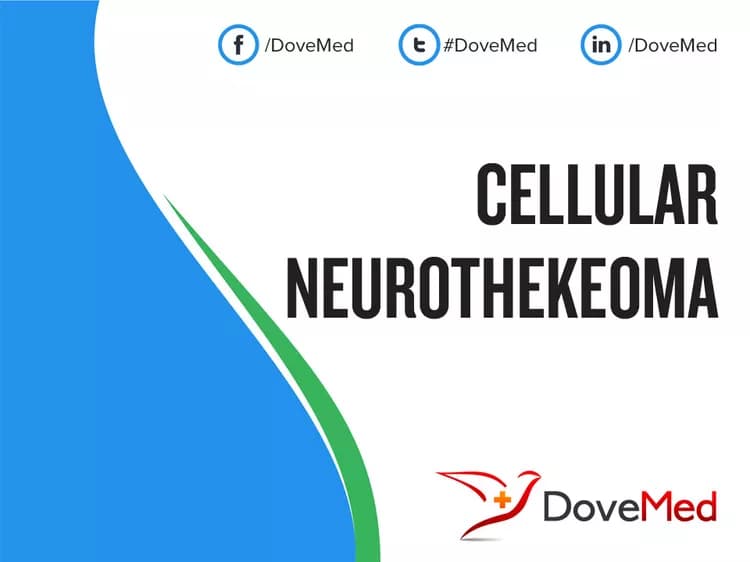What are the other Names for this Condition? (Also known as/Synonyms)
- Cellular Neuromyxoma
- Cellular NTK
What is Cellular Neurothekeoma? (Definition/Background Information)
- Cellular Neurothekeoma is a benign tumor affecting the covering of the nerves, called the nerve sheath
- These are rare tumors that occur as nodules under the skin and can occur anywhere in the body
- Cellular Neurothekeoma treatment usually involves complete surgical removal of the tumor
Who gets Cellular Neurothekeoma? (Age and Sex Distribution)
- Both males and females are affected by Cellular Neurothekeoma, although it is more common in females than males
- It commonly occurs in young individuals (in their mid-20s)
- There is no racial or geographical restriction to Cellular Neurothekeoma
What are the Risk Factors for Cellular Neurothekeoma? (Predisposing Factors)
Cellular Neurothekeoma is a rare tumor and no risk factors have been identified so far.
It is important to note that having a risk factor does not mean that one will get the condition. A risk factor increases ones chances of getting a condition compared to an individual without the risk factors. Some risk factors are more important than others.
Also, not having a risk factor does not mean that an individual will not get the condition. It is always important to discuss the effect of risk factors with your healthcare provider.
What are the Causes of Cellular Neurothekeoma? (Etiology)
- The exact cause of Cellular Neurothekeoma formation is presently unknown
- Researchers have not found the cell of origin of this tumor type
What are the Signs and Symptoms of Cellular Neurothekeoma?
The signs and symptoms of Cellular Neurothekeoma include:
- They appear as a painless skin mass or nodule; but, occasionally they may be painful to touch
- The skin over the nodule is pink, firm, and usually intact; no ulceration is identified
- The mass is usually between 0.5 to 2 cm. Occasionally, multiple nodules are seen together
- In a majority of the cases, these nodules do not cause any symptoms
- The most common location of the nodules is the head and neck region. However, these tumors can occur anywhere on the body
How is Cellular Neurothekeoma Diagnosed?
Cellular Neurothekeoma is diagnosed as follows:
- A thorough physical examination and a medical history
- A biopsy of the mass/tumor: The mass is examined by a pathologist under the microscope to arrive at a conclusive diagnosis
Many clinical conditions may have similar signs and symptoms. Your healthcare provider may perform additional tests to rule out other clinical conditions to arrive at a definitive diagnosis.
What are the possible Complications of Cellular Neurothekeoma?
- Cellular Neurothekeoma are benign tumors and no complications are usually reported
- Occasionally, if the tumors are present in the head and neck region, they may present a cosmetic issue
How is Cellular Neurothekeoma Treated?
- The treatment of Cellular Neurothekeoma is complete surgical removal. Such a surgical procedure usually cures the condition
- If the tumors are not completely removed, then they may recur after a period of time. Hence, it is important to completely remove them through surgery
How can Cellular Neurothekeoma be Prevented?
Currently, there are no methods to prevent Cellular Neurothekeoma occurrence.
What is the Prognosis of Cellular Neurothekeoma? (Outcomes/Resolutions)
The prognosis for Cellular Neurothekeoma is excellent, since it is a benign tumor.
Additional and Relevant Useful Information for Cellular Neurothekeoma:
- A Cellular Neurothekeoma should be distinguished from a classical nerve sheath myxoma, which is also a benign tumor affecting the nerve sheath
- The pathologist may use additional special techniques such as immunostains, for arriving at a diagnosis. Cellular Neurothekeoma is occasionally positive for S100 protein, CD34, smooth muscle actin, collagenous type IV, neuron specific enolase, and CD57. There is no specific staining pattern for Cellular Neurothekeoma that is diagnostic for the tumor
Related Articles
Test Your Knowledge
Asked by users
Related Centers
Related Specialties
Related Physicians
Related Procedures
Related Resources
Join DoveHubs
and connect with fellow professionals



0 Comments
Please log in to post a comment.